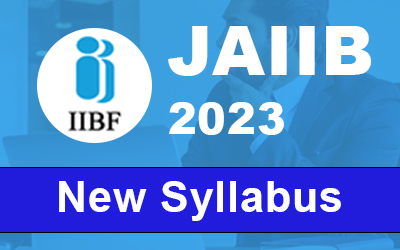The Junior Associate of Indian Institute of Bankers (JAIIB) is a highly esteemed certification in the banking sector in India. It is a stepping stone for aspiring bankers to enhance their knowledge and skills in various aspects of banking. The JAIIB exam, conducted by the Indian Institute of Banking and Finance (IIBF), covers a wide range of topics, and successful candidates are awarded the prestigious JAIIB certification. In this article, we will provide a comprehensive overview of the JAIIB syllabus, helping candidates prepare effectively for this crucial examination.
**1. Principles & Practices of Banking**
The first paper of JAIIB is "Principles & Practices of Banking." This paper serves as the foundation for understanding the core principles of banking operations. Topics covered in this section include:
**a. Banking Regulation & Regulatory Authorities**: This section delves into the role and functions of various regulatory bodies in the Indian banking sector, such as RBI, SEBI, and IRDAI.
**b. Banking Business**: Candidates will learn about the different types of banking services, banking technology, and the latest trends in the banking industry.
**c. Banking Operations**: This section covers the day-to-day operations of banks, including the functioning of deposit accounts, loans, and advances.
**d. Banking Products**: It focuses on various banking products, including savings accounts, fixed deposits, and recurring deposits, and their features.
**e. Banker-Customer Relationship**: Candidates will learn about the rights and duties of banks and customers, customer service, and grievance redressal.
**f. Development Banking**: This section explores the role of development banks in the economic development of the country.
**2. Accounting & Finance for Bankers**
The second paper, "Accounting & Finance for Bankers," emphasizes financial management and accounting principles within the banking sector. Topics covered in this section include:
**a. Business Mathematics & Finance**: This section covers topics like simple and compound interest, annuities, and time value of money.
**b. Financial Statements**: Candidates will learn how to prepare and interpret financial statements, including the balance sheet and income statement.
**c. Ratio Analysis**: This section focuses on the use of financial ratios to assess a bank's financial health.
**d. Banking Operations**: Topics include cash management, fund flow analysis, and cost accounting.
**e. Bank Reconciliation Statement**: Candidates will understand the importance of reconciling the bank's and the company's records.
**3. Legal & Regulatory Aspects of Banking**
The third paper, "Legal & Regulatory Aspects of Banking," covers the legal framework and regulations governing the banking sector. Topics covered in this section include:
**a. Regulations & Compliance**: Candidates will learn about various banking laws and regulations, including the Banking Regulation Act, SARFAESI Act, and FEMA.
**b. Negotiable Instruments Act**: This section explains the legal aspects of negotiable instruments like promissory notes, bills of exchange, and cheques.
**c. Securities for Bank Advances**: Candidates will gain insights into the different types of securities banks can accept for loans and advances.
**d. Debt Recovery & Insolvency**: This section covers the process of debt recovery and insolvency proceedings.
**e. Consumer Protection**: Candidates will understand the rights and responsibilities of consumers in the banking sector.
**4. Banking & Economic Awareness**
The fourth paper, "Banking & Economic Awareness," focuses on current affairs and economic developments. Topics covered in this section include:
**a. Banking & Financial Sector Reforms**: Candidates will learn about recent reforms in the banking and financial sectors.
**b. Economic Planning in India**: This section explores India's economic planning and policies.
**c. Role of Money Markets**: Candidates will understand the functioning of money markets and their significance in the economy.
**d. International Banking**: Topics include foreign exchange markets, international trade, and foreign exchange regulations.
**e. Current Affairs**: This section covers recent events and developments in the banking and financial world.
Conclusion
The JAIIB syllabus is comprehensive, covering essential aspects of banking, finance, law, and current affairs. Success in this exam requires a thorough understanding of these topics and regular study and practice. Candidates who master the JAIIB syllabus not only increase their knowledge but also enhance their career prospects in the banking industry. So, begin your JAIIB preparation journey today and unlock the doors to excellence in banking.
Read More: - https://www.myonlineprep.com/blog/articles/jaiib-new-syllabus-2023
Follow Us on Facebook: - https://www.facebook.com/myonlineprep/
Follow Us on Twitter: - https://twitter.com/myonlineprep
Follow Us on YouTube: - https://www.youtube.com/myonlineprep
Follow Us on Linkedin: - https://www.linkedin.com/company/myonlineprep/
Address: - Rafin Education India Pvt Ltd 405, Emarat Firdaus, Exhibition Road, Patna - 800006 (IN)
Call US: +91 92641 49917
Email US: - [email protected]





Comments